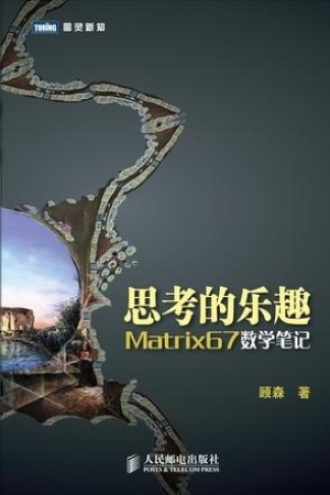出版社: Harper Perennial Modern Classics
副标题: Thoughts on the Nature of Mass Movements
出版年: 2010-1-19
页数: 192
定价: USD 14.99
装帧: Paperback
ISBN: 9780060505912
内容简介 · · · · · ·
A stevedore on the San Francisco docks in the 1940s, Eric Hoffer wrote philosophical treatises in his spare time while living in the railroad yards. The True Believer -- the first and most famous of his books -- was made into a bestseller when President Eisenhower cited it during one of the earliest television press conferences.Completely relevant and essential for understand...
A stevedore on the San Francisco docks in the 1940s, Eric Hoffer wrote philosophical treatises in his spare time while living in the railroad yards. The True Believer -- the first and most famous of his books -- was made into a bestseller when President Eisenhower cited it during one of the earliest television press conferences.Completely relevant and essential for understanding the world today, The True Believer is a visionary, highly provocative look into the mind of the fanatic and a penetrating study of how an individual becomes one.
The True Believer的创作者
· · · · · ·
-
![[美国] 埃里克·霍弗](https://img1.doubanio.com/img/author/medium/public/1504245795.09.jpg) 埃里克·霍弗 作者
埃里克·霍弗 作者
作者简介 · · · · · ·
Eric Hoffer (1902-1983) was self-educated and lived the life of a drifter through the 1930s. After Pearl Harbor, he worked as a longshoreman in San Francisco for twenty-five years. He is the author of ten books, including "The Passionate State of Mind", "The Ordeal of Change", and "The Temper of Our Time". He was awarded the Presidential Medal of Freedom in 1983 and died later ...
Eric Hoffer (1902-1983) was self-educated and lived the life of a drifter through the 1930s. After Pearl Harbor, he worked as a longshoreman in San Francisco for twenty-five years. He is the author of ten books, including "The Passionate State of Mind", "The Ordeal of Change", and "The Temper of Our Time". He was awarded the Presidential Medal of Freedom in 1983 and died later that year.
目录 · · · · · ·
Part 1. The Appeal of Mass Movements
I. The Desire for Change 3
II. The Desire for Substitutes 12
III. The Interchangeability of Mass Movements 16
Part 2. The Potential Converts
· · · · · · (更多)
Part 1. The Appeal of Mass Movements
I. The Desire for Change 3
II. The Desire for Substitutes 12
III. The Interchangeability of Mass Movements 16
Part 2. The Potential Converts
IV. The Role of the Undesirables in Human Affairs 24
V. The Poor 26
The New Poor 26
The Abjectly Poor 27
The Free Poor 31
The Creative Poor 34
The Unified Poor 34
VI. Misfits 46
VII. The Inordinately Selfish 48
VIII. The Ambitious Facing Unlimited Opportunities 49
IX. Minorities 50
X. The Bored 51
XI. The Sinners 53
Part 3. United Action and Self-sacrifice
XII. Preface 58
XIII. Factors Promoting Self-sacrifice 62
Identification with a Collective Whole 62
Make-believe 66
Deprecation of the Present 68
"Things Which Are Not" 76
Doctrine 79
Fanaticism 83
Mass Movements and Armies 88
XIV. Unifying Agents 91
Hatred 91
Imitation 101
Persuasion and Coercion 105
Leadership 111
Action 120
Suspicion 124
The Effects of Unification 126
Part 4. Beginning and End
XV. Men of Words 130
XVI. The Fanatics 143
XVII. The Practical Men of Action 147
XVIII. Good and Bad Mass Movements 153
The Unattractiveness and Sterility of the Active Phase 153
Some Factors Which Determine the Length of the Active Phase 157
Useful Mass Movements 162
Notes
· · · · · · (收起)
喜欢读"The True Believer"的人也喜欢的电子书 · · · · · ·
喜欢读"The True Believer"的人也喜欢 · · · · · ·
The True Believer的书评 · · · · · · ( 全部 314 条 )
《狂热分子》——群众运动圣经
共同体激情与社会规则——关于社会与社群的哲学心理学
论坛 · · · · · ·
| 你们知道这个原版书在哪还有的卖吗 | 来自一瓶农夫山泉 | 1 回应 | 2021-08-30 22:26:18 |
这本书的其他版本 · · · · · · ( 全部8 )
-
广西师范大学出版社 (2011)8.8分 23129人读过
-
立緒 (20041001)9.0分 214人读过
-
立緒文化事業有限公司 (2004/10/01)8.0分 20人读过
-
立緒 (2018)暂无评分 5人读过
以下书单推荐 · · · · · · ( 全部 )
- 哈佛推荐书目Ⅴ (老汉手植石榴树)
- 英文原版 (kingfish)
- wb (疑似ミルク)
- 他人荐书 (lothar)
- Achetés pp (jumaomao)
谁读这本书? · · · · · ·
二手市场
· · · · · ·
订阅关于The True Believer的评论:
feed: rss 2.0




















0 有用 PirateQuin 2023-12-14 13:17:14 上海
牛逼
0 有用 yuyiivy 2024-03-24 19:45:36 湖南
有些反复又戛然而止?
1 有用 三十 2019-07-04 17:16:05
姑且称作者为民社吧
0 有用 柴米油盐 2023-06-25 15:40:17 中国香港
20230306-20230625 HK
0 有用 一缶堂 2024-03-09 09:57:42 黑龙江
写的佶屈聱牙 简单的话非要用一些难懂的词 句型还都是复杂长句 读起来那个累啊 咱也不知道你个码头工人要表达多深奥的思想 犯得上写的这么费解吗 核心观点就是群众运动是一群渴望改变生活的人集体做的梦
0 有用 yuyiivy 2024-03-24 19:45:36 湖南
有些反复又戛然而止?
0 有用 一缶堂 2024-03-09 09:57:42 黑龙江
写的佶屈聱牙 简单的话非要用一些难懂的词 句型还都是复杂长句 读起来那个累啊 咱也不知道你个码头工人要表达多深奥的思想 犯得上写的这么费解吗 核心观点就是群众运动是一群渴望改变生活的人集体做的梦
0 有用 PirateQuin 2023-12-14 13:17:14 上海
牛逼
0 有用 Seewhen 2023-11-11 09:35:04 加拿大
subjective, controversial, unfounded but extremely interesting
1 有用 Hildy at beach 2023-10-07 15:23:46 上海
自学成才,这是第一本,一生写了十本。群众运动的发起人是 men of words,参与者是fanatics,结束是 men of action。如果是同一批领导人得同时有这三种状态并在合适的时候转换,否则结局很容易是悲剧。不管什么性质的运动,民族的,革命的,宗教的,互相是竞争对手,因为都在吸引同一批对旧的制度不满意的人,他们相互之间的尊重多于鄙视,没有外部的邪恶敌人,内部无法变成一个随时准备牺牲的... 自学成才,这是第一本,一生写了十本。群众运动的发起人是 men of words,参与者是fanatics,结束是 men of action。如果是同一批领导人得同时有这三种状态并在合适的时候转换,否则结局很容易是悲剧。不管什么性质的运动,民族的,革命的,宗教的,互相是竞争对手,因为都在吸引同一批对旧的制度不满意的人,他们相互之间的尊重多于鄙视,没有外部的邪恶敌人,内部无法变成一个随时准备牺牲的整体。对旧制度的不满意的人,是对旧制度无法给失败空虚的个人生活提供逃脱的借口而不满,他们想要的不是不受压迫的自由,而是不用选择不用承担失败责任的自由。群体的失败并不能让他们灰心丧气,这种失败是所有人的失败,个人不需要承担责任。过去和现实都是为了未来的光明做准备的都是暂时的,唯一正确的真理就在手中。 (展开)